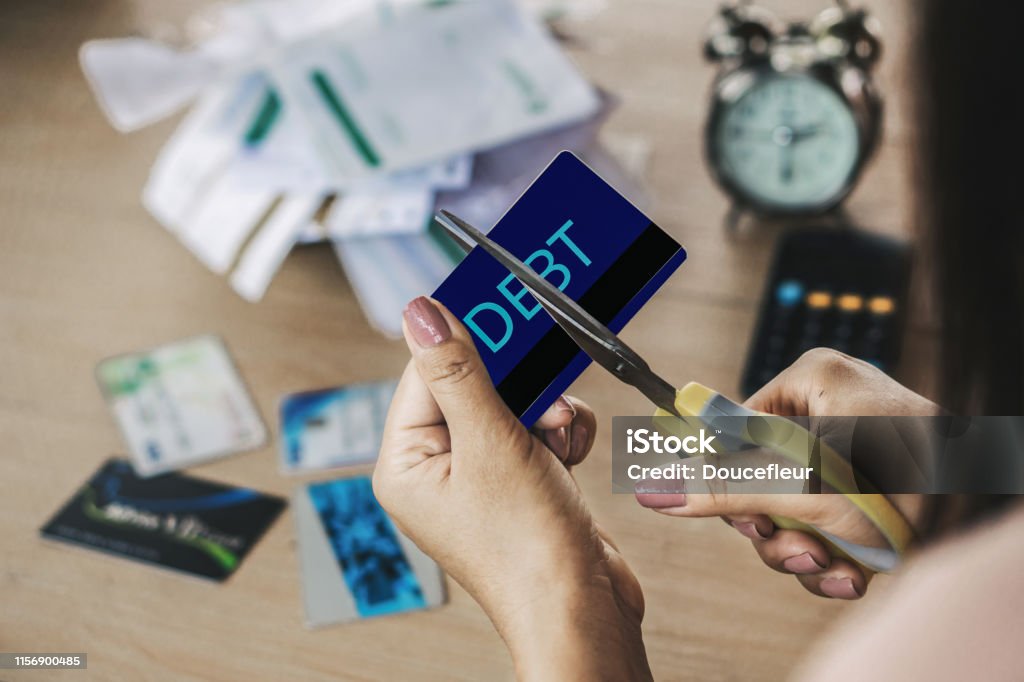In this article, we’ll explore smart strategies to help you stay debt-free, making your financial journey smooth and stress-free.
Staying debt-free might seem like a big challenge, but with the right strategies, it can be achievable. Imagine your finances as a smooth road. You want to drive without hitting any bumps or running into trouble. Keeping your money in check and avoiding debt is all about staying on that smooth road. In this article, we’ll explore smart strategies to help you stay debt-free, making your financial journey smooth and stress-free.
1. Create a Budget You Can Stick To
- Why a Budget is Important
Think of a budget as your money’s roadmap. Without it, you’re driving blind. A budget helps you see where your money is going and ensures you don’t spend more than you earn. This is key to staying debt-free because it enables you to manage your money wisely.
- How to Make a Budget
- List Your Income: Write down all the money you make each month from your job, side gigs, or other sources.
- Track Your Expenses: Write down expenses like rent, groceries, and utilities.
- Set Spending Limits: Decide how much you want to spend in each category, and stick to it.
- Review Regularly: Check your budget every month to make sure you’re staying on track and adjust if needed.
- Tools for Budgeting
There are many apps and tools to help you budget. Apps like Mint, YNAB (You Need a Budget), and EveryDollar can help you keep track of your spending and stick to your budget.
2. Build an Emergency Fund
- Why You Need an Emergency Fund
An emergency fund is like a safety net. It’s money set aside for unexpected expenses, like car repairs or medical bills. Without it, you might have to use credit cards or loans, which can lead to debt.
- How to Start an Emergency Fund
- Set a Goal: Aim to save enough to cover three to six months of living expenses.
- Save Regularly: Put aside a small amount of money from each paycheck into your emergency fund.
- Keep It Separate: Keep this money in a separate savings account so you’re not tempted to spend it.
- Benefits of an Emergency Fund
Having an emergency fund helps you handle unexpected costs without borrowing money. It gives you peace of mind and keeps your finances stable.
3. Pay Off Debt Quickly
- Why Paying Off Debt Matters
The sooner you pay off debt, the less interest you’ll pay. High-interest debt, like credit card balances, can grow quickly, making it harder to stay debt-free.
- How to Pay Off Debt
- List Your Debts: Write down all your debts, including the amount owed and the interest rate.
- Choose a Repayment Plan: You can use the “snowball” method, paying off the smallest debt first, or the “avalanche” method, focusing on the highest interest debt first.
- Make Extra Payments: Whenever possible, pay more than the minimum amount due to reduce your debt faster.
- Staying Motivated
Paying off debt can take time. Keep track of your progress and celebrate small victories along the way to stay motivated.
4. Avoid Impulse Purchases
- Why Impulse Purchases Are Problematic
Impulse purchases are like speed bumps on your financial road. They can throw off your budget and lead to unnecessary debt. When you buy things on a whim, you might not realize how much you’re spending until it’s too late.
- How to Avoid Impulse Buying
- Make a Shopping List: Before you go shopping, write down what you need and stick to it.
- Wait Before Buying: If you see something you want but don’t plan to buy, wait 24 hours. This gives you time to decide if it’s worth it.
- Set Spending Limits: Decide how much you can spend on non-essential items each month and stick to it.
- Benefits of Avoiding Impulse Buys
By avoiding impulse purchases, you stick to your budget, save more money, and reduce the risk of going into debt.
5. Use Credit Wisely
- Why Smart Credit Use is Crucial
Credit cards can be useful tools when used wisely. However, if you’re not careful, they can lead to debt. It’s important to use credit responsibly to avoid financial trouble.
- How to Use Credit Wisely
- Pay Your Balance in Full: Avoid interest charges by paying off your credit card balance in full each month.
- Keep Credit Utilization Low: Try to use less than 30% of your credit limit to maintain a good credit score.
- Avoid Opening Too Many Accounts: Opening too many credit accounts can negatively affect your credit score and make it harder to manage your finances.
- Benefits of Responsible Credit Use
Using credit wisely helps you build a good credit history, avoid debt, and manage your finances effectively.
6. Set Financial Goals
- Why Setting Goals Helps
Setting financial goals gives you something to work towards and helps you stay focused. Whether it’s saving for a vacation or paying off a loan, goals can guide your spending and saving habits.
- How to Set and Achieve Goals
- Define Your Goals: Write down what you want to achieve and how much it will cost.
- Create a Plan: Decide how much money you need to save each month to reach your goal.
- Track Your Progress: Monitor your progress regularly to see how close you are to reaching your goal and make adjustments as needed.
- Examples of Financial Goals
Examples include saving for a down payment on a house, building an emergency fund, or planning for retirement.
7. Live Within Your Means
- Why Living Within Your Means is Essential
Living within your means means not spending more money than you earn. If you spend more than you make, you’ll have to borrow money, which can lead to debt.
- How to Live Within Your Means
- Stick to Your Budget: Follow your budget to ensure you’re not overspending.
- Avoid Lifestyle Inflation: As your income increases, don’t automatically increase your spending. Instead, save or invest the extra money.
- Find Affordable Alternatives: Look for ways to save money on everyday expenses, like cooking at home instead of eating out.
- Benefits of Living Within Your Means
Living within your means helps you avoid debt, save money, and build a stable financial future.
8. Build a Good Credit History
- Why a Good Credit History Matters
A good credit history can help you get better loan terms and lower interest rates. It also shows lenders that you’re responsible with money, which can make it easier to borrow money when you need it.
How to Build and Maintain Good Credit
- Pay Bills on Time: Late payments can hurt your credit score, so always pay your bills on time.
- Keep Credit Card Balances Low: Use your credit cards responsibly and keep your balances low.
- Check Your Credit Report: Regularly review your credit report for errors and make sure your information is accurate.
- Benefits of a Strong Credit History
A good credit history can save you money on interest and help you qualify for loans and credit cards with better terms.
9. Avoid Unnecessary Fees
- Why Fees Can Be Problematic
Unnecessary fees, like overdraft fees or late payment charges, can eat into your budget and lead to financial strain. Avoiding these fees helps you keep more of your money.
- How to Avoid Unnecessary Fees
- Keep Track of Your Accounts: Monitor your bank accounts to avoid overdrafts and other fees.
- Pay Bills on Time: Set up reminders or automatic payments to ensure you never miss a due date.
- Use Fee-Free Accounts: Choose bank accounts and credit cards that don’t have monthly fees or other charges.
- Benefits of Avoiding Fees
By avoiding unnecessary fees, you save money and keep your finances in better shape.
10. Seek Professional Advice When Needed
- Why Professional Advice Can Help
Sometimes, it’s hard to manage your finances on your own. Financial advisors and counselors can provide expert advice and help you create a plan to stay debt-free.
- How to Find Help
- Consult a Financial Advisor: A professional can help you with budgeting, investing, and managing debt.
- Use Online Resources: Many websites offer free financial advice and tools.
- Ask for Recommendations: Talk to friends or family for recommendations on financial professionals.
- Benefits of Professional Advice
Getting help from an expert can provide you with new strategies, improve your financial management, and help you stay on track.
11. Practice Smart Spending Habits
- Why Smart Spending is Essential
Smart spending helps you avoid unnecessary debt by ensuring you only purchase what you need and can afford. It’s easy to get caught up in the excitement of a sale or a new product, but impulsive buying can lead to financial trouble.
- How to Develop Smart Spending Habits
- Prioritize Needs Over Wants: Focus on spending money on essentials like housing, food, and healthcare before indulging in non-essential items.
- Set Spending Limits: Establish clear limits for non-essential purchases and stick to them to avoid overspending.
- Research Before Buying: Take the time to compare prices and read reviews before purchasing to ensure you’re getting the best value.
- Benefits of Smart Spending
By practicing smart spending habits, you ensure that your money is spent wisely, which helps you avoid debt and save more for future needs.
12. Utilize Cash-Back and Rewards Programs
Why Cash-Back and Rewards Programs Can Help
Cash-back and rewards programs can provide extra savings and benefits when used correctly. They can help you save money on purchases you would make anyway, reducing the need to use credit and potentially incurring debt.
- How to Use Cash-Back and Rewards Programs Effectively
- Choose the Right Cards: Select credit or debit cards with cash-back or rewards programs that fit your spending habits.
- Pay-Off Balances: To avoid debt, always pay off your credit card balances in full each month, even if you’re earning rewards.
- Track Rewards: Keep an eye on your rewards and cash-back earnings to maximize the benefits and use them for necessary expenses.
- Benefits of Using Rewards Programs
Utilizing cash-back and rewards programs can provide financial benefits and savings, making it easier to manage your money without accumulating debt.
13. Avoid High-Interest Loans
- Why High-Interest Loans Are Risky
High-interest loans, such as payday loans or certain credit card cash advances, can quickly lead to debt because of their steep interest rates. These loans often trap borrowers in a cycle of debt due to their high costs.
- How to Avoid High-Interest Loans
- Explore Other Options: Look for lower-interest alternatives such as personal loans from credit unions or banks.
- Build an Emergency Fund: Having an emergency fund can prevent the need for high-interest loans during unexpected financial situations.
- Borrow Responsibly: Only take out loans if necessary and ensure you understand the terms and interest rates before committing.
- Benefits of Avoiding High-Interest Loans
Avoiding high-interest loans helps you save money on interest and reduces the risk of falling into a debt trap, keeping your finances healthier and more stable.
Conclusion
Staying debt-free is like maintaining a smooth road for your finances. By using these smart strategies, you can avoid common pitfalls and keep your financial journey on track. Remember, staying debt-free isn’t about being perfect—it’s about making smart choices and sticking to them.
Do you have any tips or questions about staying debt-free? Share them in the comments below! Your insights might help others on their journey to financial freedom.


























